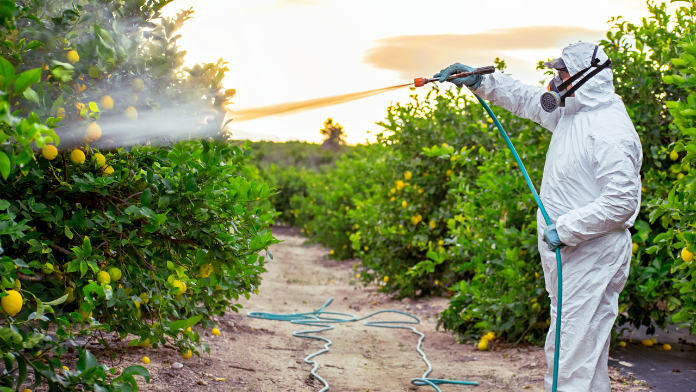Pesticides represent a double-edged sword. For decades, farmers around the world have relied on them for protect crops from insect infestations and plant diseases. However, excessive and unregulated use raises serious human and environmental health concerns.
Pesticides linked to serious health problems
Numerous scientific studies have highlighted one correlation between pesticide exposure and a variety of serious health problemsamong which:
Those most at risk: children and pregnant women
The most vulnerable groups, such as children and pregnant women, are particularly at risk. According to relationship WWF 22 Pesticides: a silent pandemic Italy was the sixth country in the world for their use with almost 400 different substances for a total of 114 thousand tons per year.
Call for safe regulation of pesticides
Following the latest protests by farmers, the President of SIN (Italian Society of Neurology), the Professor Alessandro Padovani, issued a warning. The invitation is to make a usage responsible for pesticides so that they are not used in an indiscriminate and uncritical manner, to guarantee normal development of the cerebral nervous system in children without increasing the risk of neurological diseases in adults and the elderly.
Glyphosate: effects on human health
Il glyphosatethe active ingredient in many herbicides widely used in agriculture, is at the center of a heated debate regarding its effects on human health and the environment. Data from the International Agency for Research on Cancer (IARC), a specialized agency of the World Health Organization (WHO), classified glyphosate as “probably carcinogenic to humans” in 2015, based on limited evidence linking it to an increased risk of non-Hodgkin’s lymphoma.
Conflicting opinions
The latest study has just been published on Neural Regeneration Research by researchers at Washington University School of Medicine in Saint Louis. These have highlighted the direct and/or indirect proinflammatory action of glyphosate. However, other regulatory agencies, such as the European Food Safety Agency (EFSA) and the United States Environmental Protection Agency (EPA), have concluded that glyphosate is unlikely to pose a carcinogenic risk to humans when used correctly.
Pesticides and neurogenerative diseases
«Other data would confirm this the pro-inflammatory action of glyphosates in support of the risk that an indiscriminate and irresponsible use of pesticides which”, states Padovani “could increase the risk of developing not only neoplastic and cerebrovascular pathologies, but above all malattie neurodegenerative such as Alzheimer’s, Parkinson’s and Amyotrophic Lateral Sclerosis.”
You come into contact with the power supply
One of the main ways people are exposed to pesticides is through consumption of contaminated food. Although pesticide residues in food products are often within regulatory limits, accumulation over time and the combination of different pesticides can pose a long-term health risk. Furthermore, farmers and agricultural workers who directly handle these substances are exposed to even higher levels of toxicity.
Pesticides and environmental pollution
It must be remembered that the indiscriminate use of pesticides has negative consequences also on the environment. Aquatic and terrestrial ecosystems can be severely damaged by pesticide pollution, threatening biodiversity and ecosystem stability. Additionally, some pesticides persist in the environment for long periods, accumulating in soils, groundwater, and even living organisms.
Sustainable agricultural practices for a secure future
Addressing the issue of pesticides and health requires a multifaceted approach. Is critical promote sustainable agricultural practices and alternatives to these chemicals, such as organic farming and the use of biological control of infestations. Regulations regarding the use and marketing of pesticides must be strengthened and strictly enforced to protect public health and the environment to ensure a safe and healthy future for all.
